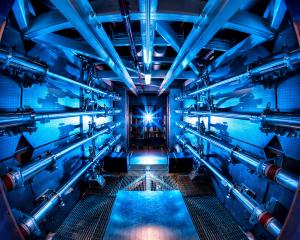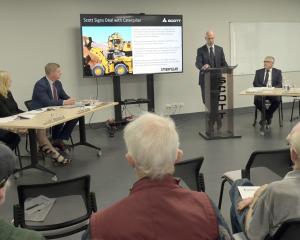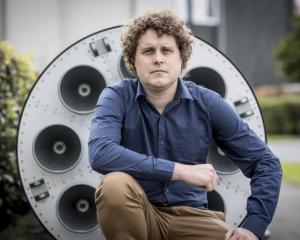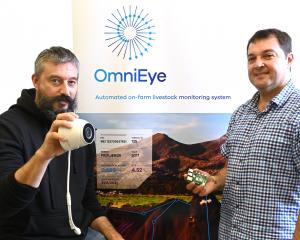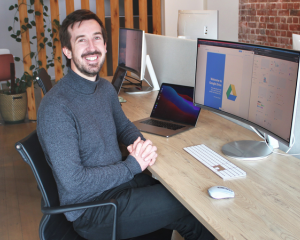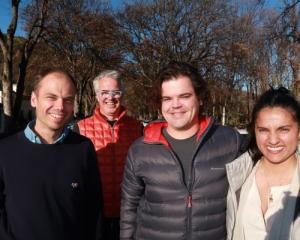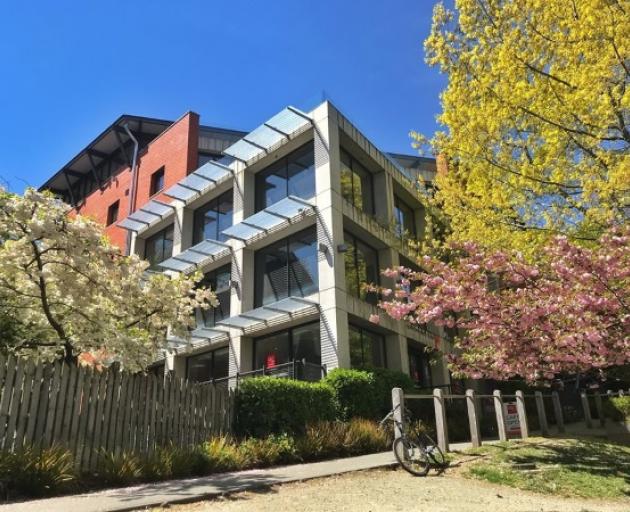
Queenstown Resort College (QRC) has developed a unique New Zealand qualification — ‘machine learning fundamentals’ — that’ll help tech businesses screaming out for staff.
QRC boss Charlie Phillips says they’re potentially looking at enrolling about 200 tech students a year.
‘‘This is a significant milestone in our evolution, and we will be looking to commence delivery over the upcoming winter months.’’
What really excites him, he says, is the opportunity to help diversify Queenstown’s tourism- dependent economy which was decimated by Covid border closures.
‘‘This is a real cornerstone to making sure the tech sector in Queenstown can become sustainable.
‘‘Start-ups are great, and there’s plenty of activity happening in that space, but to really go
to the next level, we need to ensure we can attract some established tech businesses, and the barrier to doing that is accessing talent.’’
Resort college out to diversify Whakatipu’s economy
Phillips says the course will appeal to school leavers, those who’ve done a degree and those looking for another career.
‘‘You learn the fundamentals and then you go into employment, so this is a real study-to-work.’’
He says they were approached by local tech entrepreneur Roger Sharp and artificial intelligence (AI) guru Neil Jacobstein, who identified machine learning wasn’t being offered in NZ.
‘‘We started this probably 18 months ago — we had to write this ourselves and address the gap and go through a massive process.’’
QRC academic director Jacqui McLean, who’s spearheaded the course, says the content developer’s been Tom Reid, an AI machine learning expert who’s worked extensively for Microsoft.
She confirms they’ve received approval from the NZ Qualifications Authority to deliver a certificate in machine learning fundamentals.
Sixty credits will be offered — 40 in machine learning, 10 in ‘responsible AI’ and 10 for a machine learning team project.
The programme will take five months to complete and cost about $3600 per student.
A ‘bold and important step for Q’town’
Phillips says he’s delighted with the support they’ve had from the industry in helping construct the programme — ‘‘there’s a real community around this’’.
Sharp adds: ‘‘Technology is an add-on to the local community that has huge potential and can diversify us from future economic shocks such as we have just had.
‘‘At present there’s a dire short age of tech talent globally, and the situation in Australia and NZ is acute after having had the borders closed for so long.”
He believes the QRC course will be a “real hit for students and employers alike”.
“Graduates will enter the workforce at a significant premium to starting salaries elsewhere, and will get jobs quickly.
“The trick is to keep them in the Whakatipu, so we can build an ecosystem here.”
Sharp says QRC’s to be commended for this initiative.
‘‘It is a bold and important step for Queenstown.’’
So what is machine learning?
Machine learning’s defined as teaching computers to learn and recognise patterns from looking at huge amounts of data humans can’t analyse with traditional methods.
And AI is the software that surrounds these predictive models.
QRC says graduates will be in demand across many industry sectors.
Promotional material states there’s an ‘‘acute worldwide shortage’’ of machine learning experts, the highest-demand growth tech skillset, globally, and intense international competition for talent.

